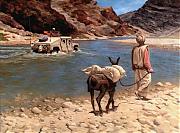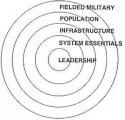... Pirates have been causing trouble ever since men first went down to the sea in ships, or at least since the 14th century B.C., when Egyptian records mention Lukkan pirates raiding Cyprus. A millennium later, Alexander the Great tried to sweep the Mediterranean clear of marauding bandits, to no avail. In 75 B.C., ship-based cutthroats took Julius Caesar hostage and ransomed him for 50 talents. The historian Plutarch wrote that Caesar then returned with several ships, captured the pirates and crucified the lot of them.
That hardly spelled the end of pirating. At the beginning of the 13th century A.D., Eustace the Monk terrorized the English Channel, and the European colonization of the Americas, with all its seaborne wealth, led to the so-called golden age of piracy, from 1660 to 1730—the era of Blackbeard, Black Bart, Captain Kidd and other celebrated pirates of the Caribbean. The era ended only after seafaring nations expanded their navies and prosecuted more aggressively to deal with the threat.
Now the seedy romance of the golden-age legends may be supplanted by a new reality: as governments cut their navies after the cold war, as thieves have gotten hold of more powerful weapons and as more and more cargo has moved by sea, piracy has once again become a lucrative form of waterborne mugging. Attacks at sea had become rare enough to be a curiosity in the mid-20th century, but began to reappear in the 1970s. By the 1990s, maritime experts noted a sharp increase in attacks, which led the IMB to establish the Piracy Reporting Centre in 1992—and still the buccaneering continued, with a high of 469 attacks registered in 2000. Since then, improvements in reporting, ship-tracking technology and government reaction have calmed the seas somewhat—the center counted 329 attacks in 2004, down to 276 in 2005 and 239 last year—but pirates remain very much in business, making the waters off Indonesia, Bangladesh, Nigeria and Somalia especially perilous. "We report hundreds of acts of piracy each year, many hundreds more go undetected," says Capt. Noel Choong, head of the Piracy Reporting Centre, in Kuala Lumpur. "Ships and their crews disappear on the high seas and coastal waters every year, never to be seen again." Even stationary targets, such as oil platforms, are at risk...















Bookmarks